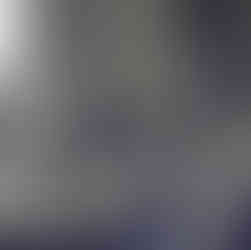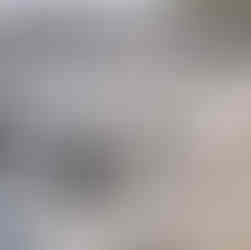When I stood in Inverness-shire for Westminster in Feb 1974
- Rob Gibson

- Feb 12, 2024
- 4 min read
Updated: Feb 17, 2024
My debut parliamentary campaign
The Federation of Student Nationalists (FSN) Skye Crofting Scheme held in Glendale in 1970 was my introduction to the Isle of Skye and its politics. We struck up close working relations with crofters and their issues over the following years. Prompted by the pioneering Three Chimneys restaurant owner, Peter MacAskill who was an elected member of the (now Defunct) Skye district council, we added our enthusiasm to protests against an incoming, arrogant landlord at Strollamus near Broadford. Students with placards backed an estate demo against Horace Martin in September 1972.
Out of that drawn-out conflict, I wrote a short book, The Promised Land, as a fund raiser and to set the crofters case in context. It was published in early 1974. In June 1973 I had graduated and completed teacher training at Dundee. I sought a job in an Inverness-shire school. None were available so I took a post in August 1973 at Invergordon Academy in Easter Ross teaching Geography and Modern Studies.
That autumn I sought and won the SNP candidacy for Inverness-shire, the huge seat held by Liberal, Russell Johnston since 1964. It covered Inverness, through Badenoch onto Lochaber and reached out to the Isle of Skye. Politically, the deepening economic crisis under Ted Heath’s Tories saw them try to beat the latest miners’ strike and fuel shortages and show Britain who was boss. An early election was called for 28th February 1974.
Campaigning over huge distances and a scattered electorate required over thirty meetings, often three a night. Some of these were held by candlelight in the three-day power blackouts. The campaign was amongst the last before TV became widespread in the Highlands resulting in well-attended meetings and tough questions, repeated after a swift drive to the next venue.
My election agent, Frank G Thompson, planned the schedule, the contacts and the friendly offers of beds for the night as well as the production of leaflets newspaper adverts etc. It was the time of It’s Scotland’s Oil campaign which saw plans for oil rig building at Kishorn close to Skye. A heightened awareness of the American oil invasion had been successfully stirred by the village hall tours throughout 1973 of The Cheviot, the Stag and the Black, Black Oil , John McGrath’s radical ceilidh play.
During the campaign proper my enthusiastic supporters in Inverness had me circulate in a loudspeaker car. I remember my ‘witty’ banter near the old Inverness Thistle football ground in the Crown. As football fans walked by I broadcast, ‘You could be voting for a nation rather than a region when Scotland play in the World Cup in Germany.’ Few of them agreed then.
My earlier connections with Skye included, as a student folk musician, helping fundraise for what would become the West Highland Free Press (WHFP), Brian Wilson’s socialist paper launched in April1972 and based at Kyleakin. Mr Wilson offered no favours for the SNP after that. Nevertheless, the Free Press gave widespread coverage to all candidates standing in February 1974.
In a constituency review the WHFP, ahead of polling day, described me ‘representing a pinkish strand in the SNP coat of many colours’ and reported me ‘reconciled to devoting twenty years of my his life to winning the seat’.
In time I would contest several other seats in the Highlands before success in 2003 being elected as a regional SNP member for Highlands and Islands to the Scottish Parliament which Wilson fervently opposes to this day.
My recollections of the ’74 campaign include confounding Labour supporting CND folks in Portree with my view that Russia didn’t want war any more than the West. In a discussion in Inverness about poor television reception I argued that the BBC/ITV needed to send signals, using new TV relays, around the intervening hills. In Mallaig I met fishermen at the pier concerned as I was about the Common Fisheries Policy. At Invergarry I called for strong land reforms as had happened through UN intervention in the Third World. At Foyers, by candlelight, I backed more hydro-electric development.
The mood of voters was clearly bolstered by the Scotland’s Oil campaign. Two eve of poll meetings were held, one in Fort William and then a second with me being driven by a supporter sixty-six miles to a crowed after-show audience in an Inverness cinema. It was so uplifting and quite emotional.
As an aside, in 1983 election I confronted rookie Social Democrat candidate Charles Kennedy at Fortrose. On the nuclear question he refused to answer me, saying, ‘I attended Mr Gibson’s eve of poll meeting in Forth William in 1974. He failed to convince me then and I don’t suppose I’ll convince him tonight’ – a quintessential Kennedy response.
The election count was not held till the Friday evening, to gather the far-flung ballot boxes. The result of a hung parliament was already all the talk. After the Argyll result on the Saturday morning, our seventh SNP MP was elected. Not from Inverness-shire though, but I did increase the SNP vote by 10.8% to reach 7,816 with the Tory second and Russell Johnston returned once more.
As another aside, the UK Election Survey for February 1974 by Butler and Kavanagh mistook my vote and placing. It had me fourth. This was pointed out to me by an election geek a couple of years ago.
In the real world, the March 8th 1974 edition of the Free Press noted ‘The Scottish Nationalist moved into third place, undoubtedly drawing away Labour supporters with a lively and radical campaign’. I’ll take that!
RG 2 2024
















Comments